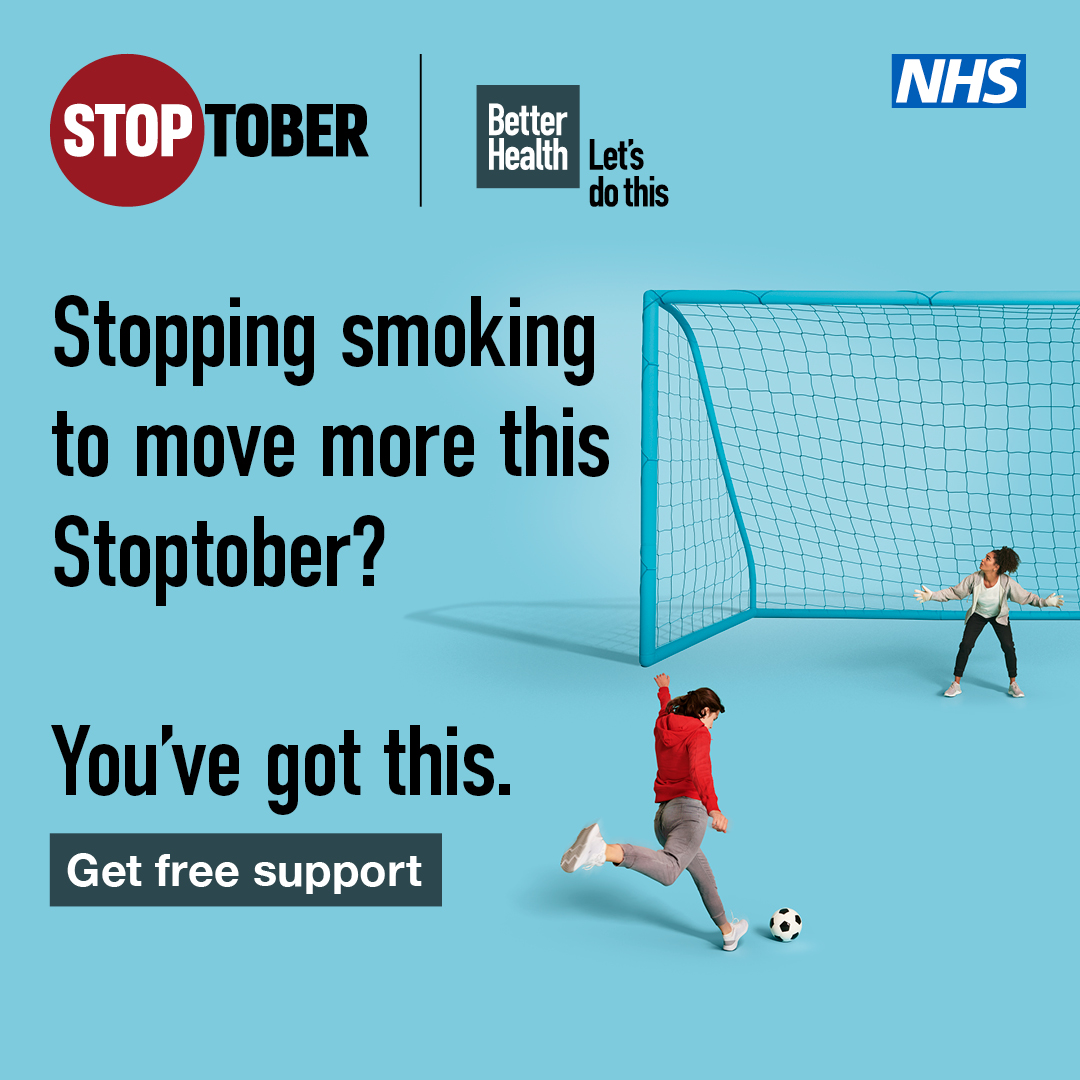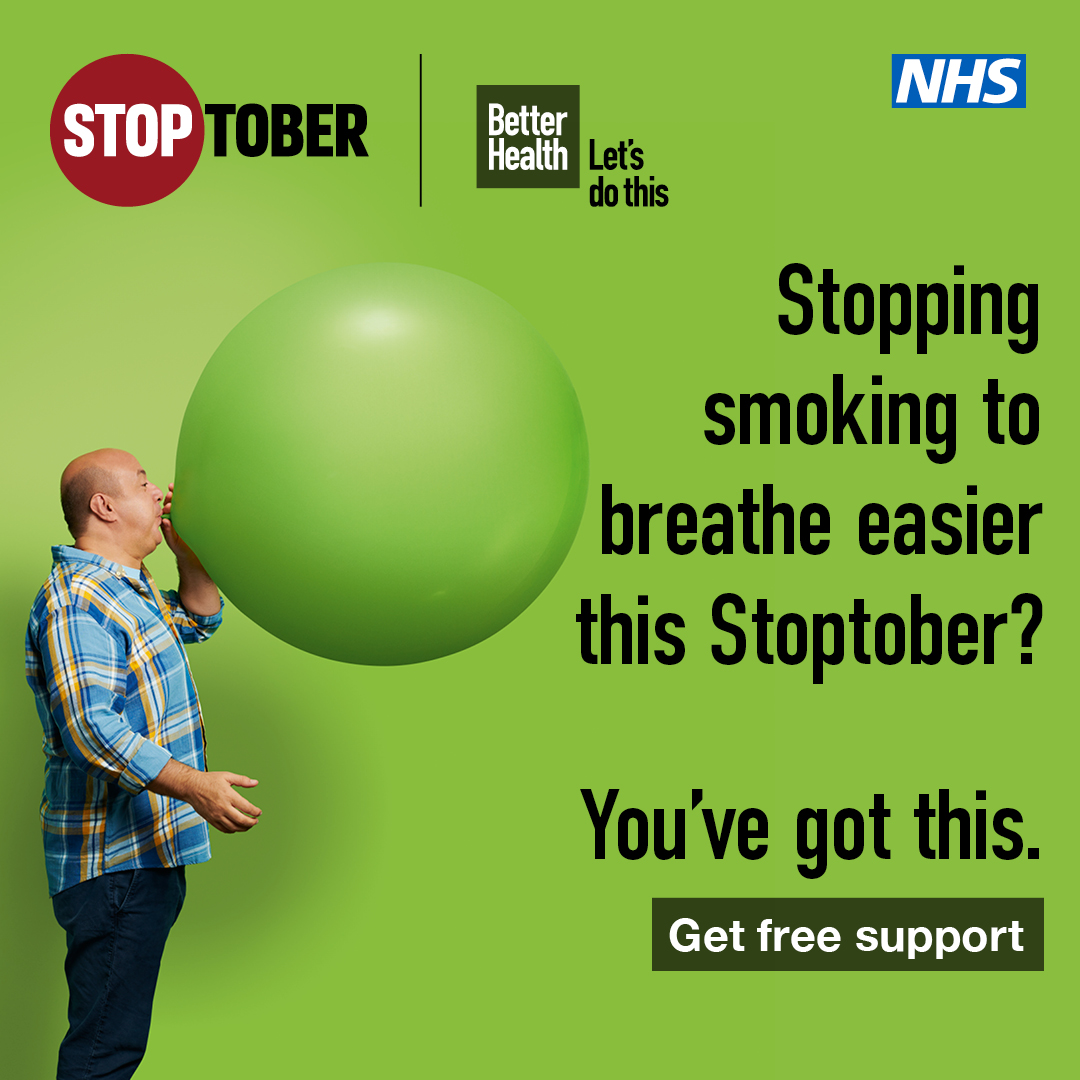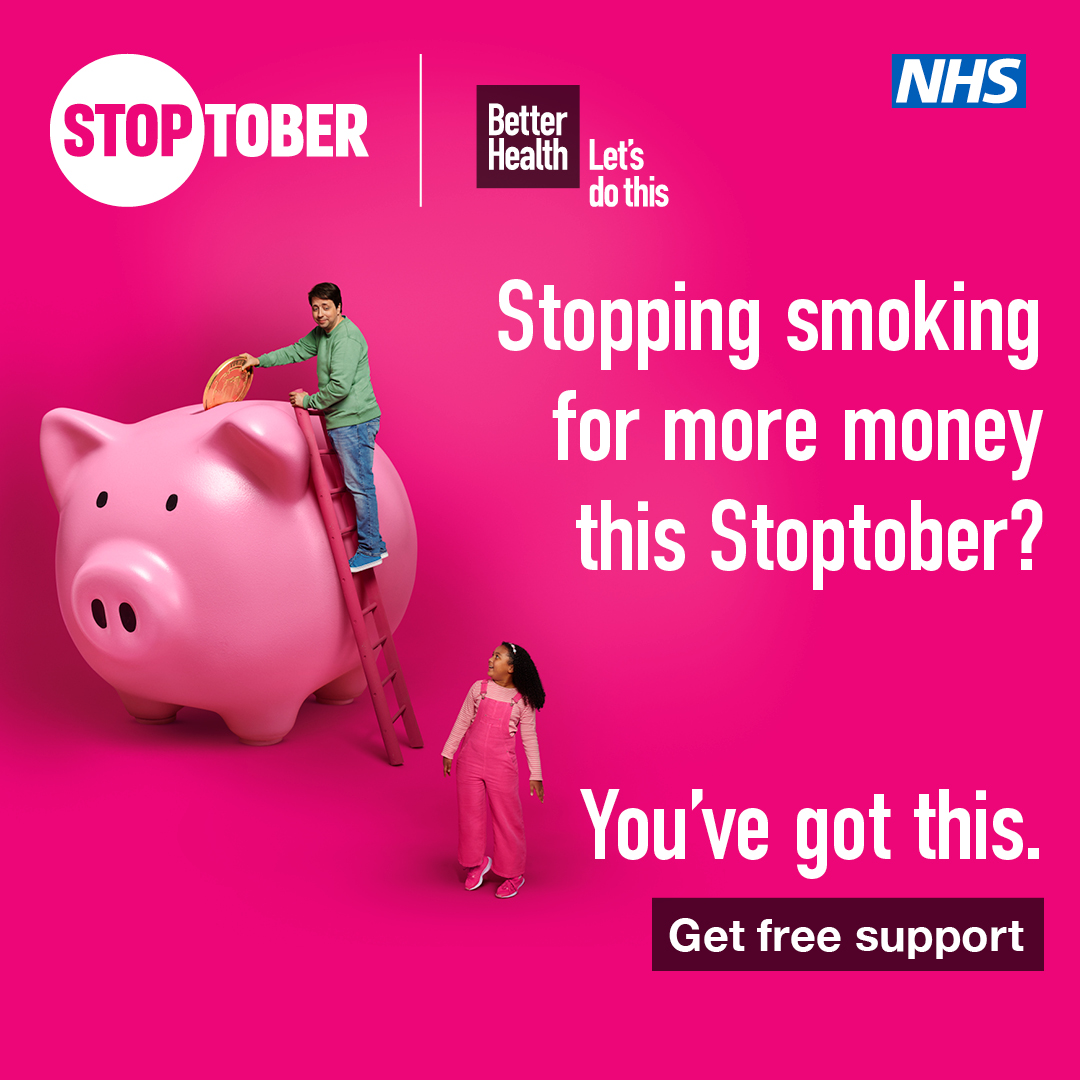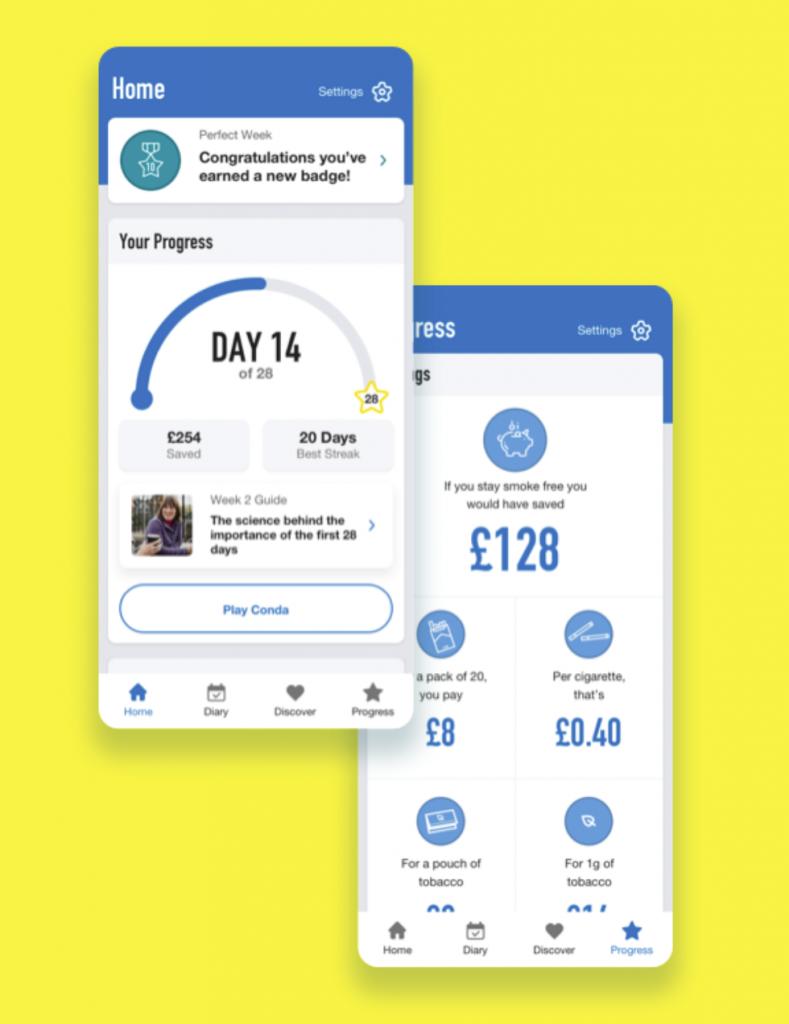Stoptober: How to keep going with your quit attempt
At the start of October, thousands of people joined in with Stoptober – an attempt to go smoke-free for 28 days.
If you are one of the people taking part in Stoptober, we wanted to offer some encouragement and tips on how to keep going.
Why keep going?
Because the longer you can go smoke-free, the more likely you will stop smoking permanently.
If you can go 28 days without smoking, you are up to five times more likely to kick the habit for good.
It’s not always easy to make a long-lasting lifestyle change, but with structure and support, it is possible.
Coping with cravings
Nicotine cravings are a normal part of giving up smoking. While they can be tricky to deal with, there are some helpful ways to make them easier to manage.
- A nicotine replacement like a patch, gum or vape satisfies the craving but without the harmful chemicals of cigarettes. There are lots of options that work in different ways.
- Wait it out. It may sound basic, but cravings typically pass after about 10 minutes.
- Find a distraction to take your mind off smoking – go for a walk, read a book, call a friend or play a video game.
- Get away from triggers. If other things make you think of smoking – the smell of it or being in certain situations like a pub – remove yourself to help the craving pass.
- Focus on your motivation. Whether you want to quit smoking to breathe easier, move better or save money, use that as motivation to get through the craving.



Every craving you get through without smoking gets you one step further to giving up entirely. And from getting past that first craving, you might even start to feel the benefits sooner than you think.
Short, medium, and long-term benefits
The sooner you quit, the sooner you will notice changes.
| Time after your last cigarette | Benefit |
|---|---|
| 20 minutes | Your pulse rate will start returning to normal |
| 8 hours | You have removed half the carbon monoxide from your blood, and your oxygen levels are recovering |
| 48 hours | All carbon monoxide has left your body, with taste and smell improving |
| 72 hours | Your energy should increase, and breathing should be easier |
| 2 – 12 weeks | Circulation has improved, with blood getting to your heart and muscles much easier |
| 3 – 9 months | Coughs, wheezes and breathing problems have reduced |
| 1 year | You are now 50% less likely to have a heart attack than if you had continued smoking |
| 10 years | Your risk of death from lung cancer has halved compared to someone who still smokes |
Giving up smoking is also known to benefit your mental health and overall well-being. You can read more about how quitting smoking improves mood and helps relieve stress, anxiety and depression on the NHS website.

How to get help
Quitting with willpower alone is very hard for most people.
That’s why the NHS offers a wide range of support, resources and services to suit different people and motivations.
If you want regular nudges or to track your progress and saving, you could sign up for daily email support or try the free NHS Quit Smoking app (App store | Google Play).
You can read up on aids to help you stop smoking or less harmful replacements like vaping.
Or you can contact the Newcastle Stop Smoking Plus service via their website, by email or by calling 0191 269 1103.
